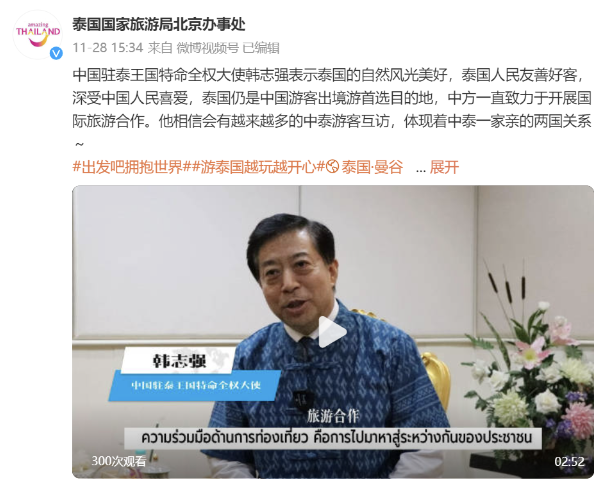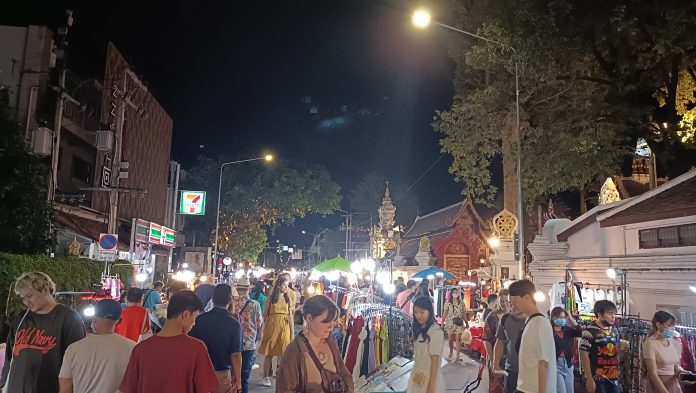Chinese tourists are reluctant to visit Southeast Asia citing safety concerns.
By Kamun Lai
Yatong Xue will not travel to Southeast Asia in the coming months due to safety concerns triggered by a shooting incident in Thailand and scary movies about Chinese citizens being kidnapped to carry out scams.
In October 2023, a shooting rampage in shopping mall Siam Paragon injured five people and killed two tourists, one of them Chinese. Located in Bangkok, the mall is popular with Chinese tourists.
“I had planned to travel to Thailand after hearing of the visa-free policy for Chinese tourists in October but I changed my mind after the shooting incident. I also found out that about one-tenth of the population in Thailand possess guns. I had thought guns were banned there,” Xue says.
On September 25, Thailand launched a visa-free scheme for Chinese tourists, which will last for five months. On the same day, Thai Prime Minister Srettha Thavisin, along with several government officials, went to Suvarnabhumi International Airport in the capital city of Bangkok to welcome Chinese tourists.
On December 8, Thai police summoned a Chinese social media influencer over a negative video portraying a popular Bangkok nightlife district as unsafe for women. In her video, the influencer with 2.69 million followers claims 99 per cent of those hanging around the area are not good people.
Xue had been planning to travel to Thailand for four months. But this is not the first time she changed her travel plans. She had planned to go to Thailand in March but changed her mind because of news of Chinese tourists being kidnapped to scam factories located in Southeast Asian countries, mostly in Myanmar.
“After the pandemic, I was thinking about going to Thailand. The kingdom has always been popular among tourists, being well-known for delicious food and affordable sightseeing,” she says.
“But videos about scams in Myanmar and warnings to Chinese tourists not to consume cannabis by accident have gone viral on Chinese social media platforms,” she recalls.
Thailand had legalised the consumption of cannabis in 2022 but the substance is currently outlawed in China.
“If Chinese tourists take cannabis products back to China by accident, they will be in big trouble,” Xue says.

As Xue’s mom told her not to travel to Thailand due to safety concerns, she dropped the idea of travelling to Thailand and countries around Myanmar.
According to the Thai government, the number of Chinese tourists visiting Thailand this year is predicted to be around five million, significantly lower than nearly 11 million in 2019, when Chinese tourists accounted for one-fourth of its overseas tourists and ranked first among them. But in the first nine months of 2023, the number of Chinese visitors to Thailand was only 2.2 million.
Popular in China, two blockbusters released in 2023, Lost in the Stars and No More Bets, are about Southeast Asian crimes.
Lost in the Stars is adapted from a real murder case in which a Chinese man kills his wife in Thailand. The film grossed US$486.1 million at the box office in China. No More Bets, which depicts fraud factories involved in kidnapping, gambling, and violence in an undisclosed Southeast Asian country, hit US$559 million.
A series of news coverage by China Central Television in August of this year about a postdoctoral researcher of the Chinese Academy of Sciences who was smuggled to Myanmar for scamming caught public attention. The issue is widely reported by media outlets in China.
Tour guide and tourism blogger Sebas Teo finds more people are asking him about safety issues in Thailand.
Chinese tourists and those from Malaysia and Singapore consult him on Xiaohongshu, a Chinese social media platform, Instagram, and Facebook.
“Most ask about scams in which victims are cheated and kidnapped to be forced labour. Many are worried after reading news and watching movies about these incidents. No More Bets is also popular in Malaysia and Singapore,” says Teo, who is based in Singapore.
“People feel insecure about travelling to other countries after staying home for too long during the pandemic. With the influence of movies and news, they get even more anxious,” he says.
While Teo acknowledges that it is good for travellers to be more aware of safety issues, he points out that lots of fake news is being circulated online.
“If travellers are worried, they should hold their plans and set off only when they feel safe,” he says.

A month after the news of the shooting, the Tourism Authority of Thailand uploaded a video of Thapanee Kiatphaibool, governor of the authority, greeting Chinese tourists in Chinese.
“I sincerely hope that everyone will feel comfortable travelling to Thailand. In terms of safety measures, Thailand makes great efforts to ensure travellers’ safety,” she says.
Candy Wong, a China equity specialist, thinks travel demand is hit by the weak economy in China.
“The economic recovery has been weaker than expected as consumers cut down expensive overseas visits to more affordable domestic trips,” Wong says.
“The deadly shooting in Siam Paragon in October also reinforced concerns about safety in Thailand. The Chinese media’s recent emphasis on “internal circulation” over going out and the growing appreciation for domestic cultural trends may also play a part,” she says.
Edited by Kossy Chen
Sub-edited by Amelie Yeung







































